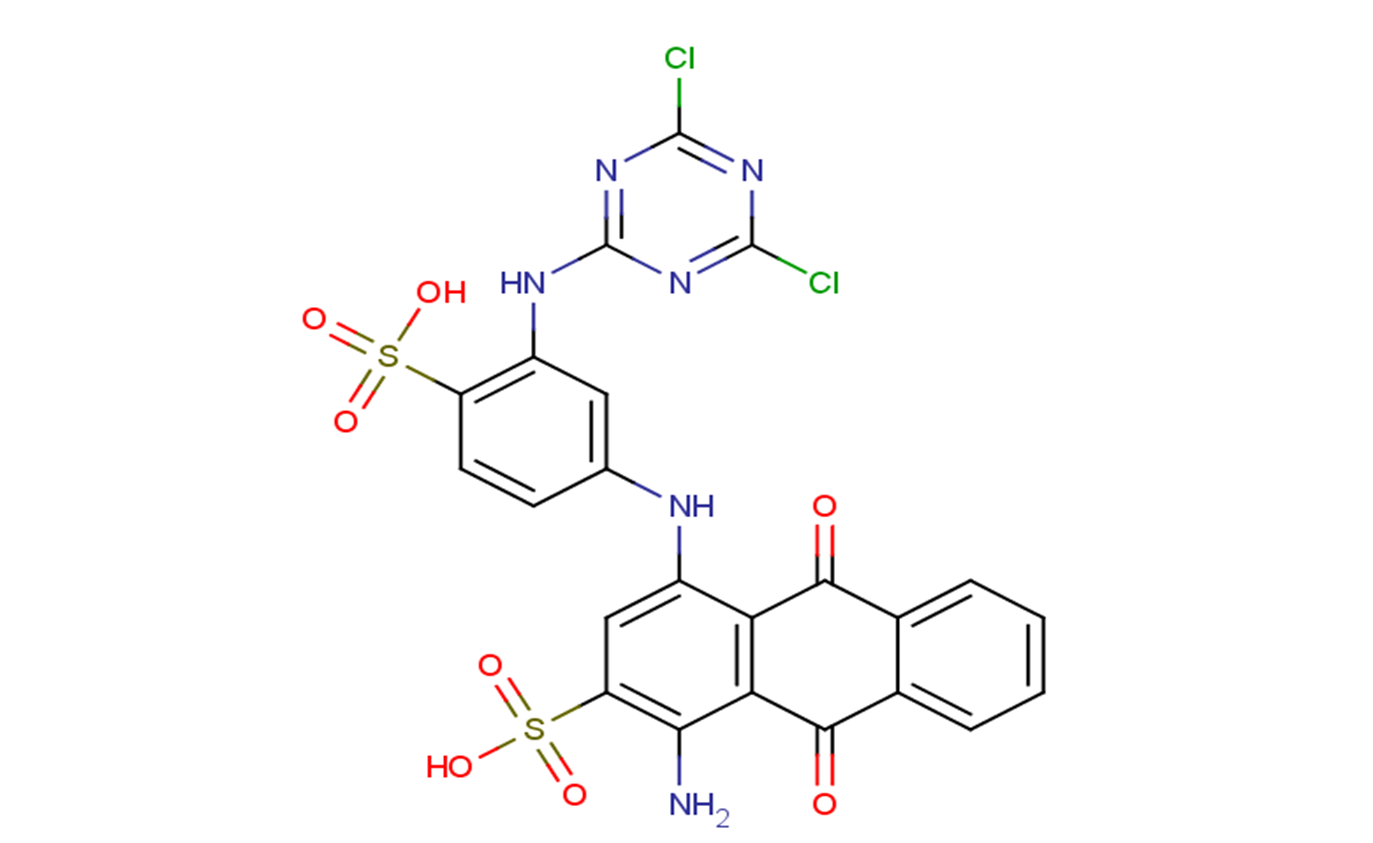
Reactive Blue 4
CAS No. 13324-20-4
Reactive Blue 4( —— )
Catalog No. M23483 CAS No. 13324-20-4
Reactive Blue 4 is an anthraquinone dye with phytotoxic, cytotoxic, and genotoxic.
Purity : >98% (HPLC)
 COA
COA
 Datasheet
Datasheet
 HNMR
HNMR
 HPLC
HPLC
 MSDS
MSDS
 Handing Instructions
Handing Instructions
| Size | Price / USD | Stock | Quantity |
| 500MG | 38 | In Stock |


|
| 1G | Get Quote | In Stock |


|
Biological Information
-
Product NameReactive Blue 4
-
NoteResearch use only, not for human use.
-
Brief DescriptionReactive Blue 4 is an anthraquinone dye with phytotoxic, cytotoxic, and genotoxic.
-
DescriptionReactive Blue 4 is an anthraquinone dye with phytotoxic, cytotoxic, and genotoxic. It is a single colorimetric chemosensor for the sequential determination of multiple analytes with different optical responses in aqueous media.
-
In Vitro——
-
In Vivo——
-
Synonyms——
-
PathwayOthers
-
TargetOther Targets
-
RecptorOthers
-
Research Area——
-
Indication——
Chemical Information
-
CAS Number13324-20-4
-
Formula Weight637.43
-
Molecular FormulaC23H14Cl2N6O8S2
-
Purity>98% (HPLC)
-
SolubilityDMSO:83.33 mg/mL (130.73 mM; Need ultrasonic)
-
SMILESC1=CC=C2C(=C1)C(=O)C3=C(C2=O)C(=C(C=C3NC4=CC(=C(C=C4)S(=O)(=O)O)NC5=NC(=NC(=N5)Cl)Cl)S(=O)(=O)O)N
-
Chemical Name——
Shipping & Storage Information
-
Storage(-20℃)
-
ShippingWith Ice Pack
-
Stability≥ 2 years
Reference
1.Reactive Blue 4 as a Single Colorimetric Chemosensor for Sequential Determination of Multiple Analytes with Different Optical Responses in Aqueous Media: Cu2+-Cysteine Using a Metal Ion Displacement and Cu2+-Arginine Through the Host-Guest Interaction.
molnova catalog



related products
-
Ibacitabine
Ibacitabine is a drug with the activity of antiviral.It?is a compound used in the construction of DNA oligomers.
-
Ianalumab
Ianalumab (VAY-736) is a decarboxylated humanized antibody against BAFF-R that inhibits the interaction between BAFF and BAFF-R, blocking BAFF-mediated apoptosis protection.
-
Thymohydroquinone
Thymohydroquinone (Thymoquinol) is a monoterpenoid phenolic compound found in thyme, oregano, and other plants in the labiaceae family.



 Cart
Cart
 sales@molnova.com
sales@molnova.com


